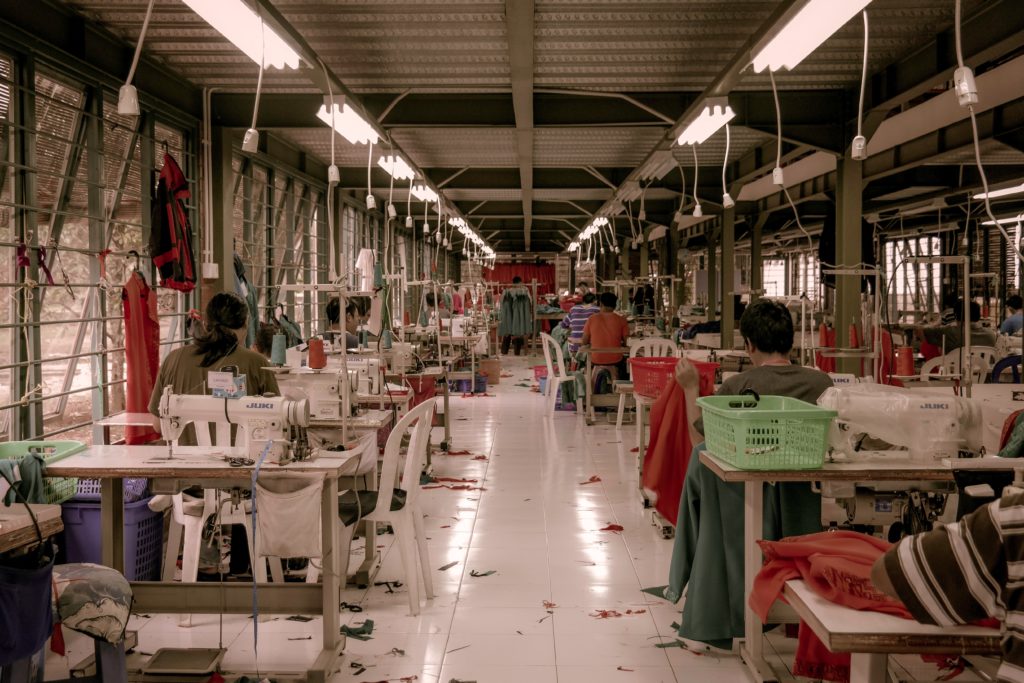For its inaugural issue, Vogue Scandinavia tapped climate activist Greta Thunberg as its cover star. Dressed sustainably, the Swedish teen had a message for the fast fashion industry.
In an oversized trenchcoat made from sustainable and recycled materials, and seated alongside a horse in a misty-looking forest, vegan teen climate activist Greta Thunberg sets the tone for the launch issue of Vogue Scandinavia. In a region known for its leadership in the fight against the climate crisis, the move comes just as the United Nations has released its most damning climate warning in nearly a decade.
Swedish activist and founder of Fridays for Future, Thunberg rose to international stardom and three Nobel Peace Prize nominations for her climate action. She began with weekly climate protests outside of Swedish Parliament in 2018 that became a global phenomenon.
Thunberg may have come to the issue’s first cover in an ethereal look, but her message about the looming climate crisis was pointed.
Fast fashion
Fast fashion comes with a laundry list of issues. It’s a leading producer of emissions for new products, and it’s also a leading contributor to landfill waste, which also produces emissions. The clothing industry, particularly fast fashion, is third behind transport and tech, according to recent data. Labor issues are widespread, too, from unhealthy working conditions to unfair wages, slave labor, and child labor.
“If you are buying fast fashion then you are contributing to that industry and encouraging them to expand and encouraging them to continue their harmful process,” Thunberg says. “Of course I understand that for some people fashion is a big part of how they want to express themselves and their identity.”

According to the Ellen MacArthur Foundation, more than half a trillion dollars worth of value is lost every year due to clothing underutilization, such as proper recycling. And secondhand shops can’t keep up with the surplus. Many countries that used to take textiles and fashion waste from the U.S. and European countries have reduced or ceased all imports.
“Many are making it look as if the fashion industry are starting to take responsibility, by spending fantasy amounts on campaigns where they portray themselves as ‘sustainable,’ ‘ethical,’ ‘green,’ ‘climate neutral’ and ‘fair.’ But let’s be clear: This is almost never anything but pure greenwashing. You cannot mass produce fashion or consume ‘sustainably’ as the world is shaped today. That is one of the many reasons why we will need a system change,” Thunberg said.
Hope for a generation
Often dismissed by her critics as an angry teen, but Thunberg says at the core, her mission is one of hope.
“There is some kind of misconception about activists, especially about climate activists that we are just negative and pessimists, and we are just complaining, and we are trying to spread fear but that’s the exact opposite. We are doing this because we are hopeful, we are hopeful that we will be able to make the changes necessary,” she says.
“If we didn’t believe that we are able to make the changes, then we wouldn’t be doing this. We are the ones who have not given up, who still have hope, who still have optimism.
“People may call us naive for believing that we can change the world but then please do so, because we know we will be able to change the world if we get enough people with us.”
The activist traveled across the globe in 2019 and says that convinced her change is indeed happening—from the bottom up.
“And when I say from the bottom up I don’t mean that we—through our power as consumers make the changes that are necessary. But rather that we as democratic citizens and voters and family members, friends—that we use that power to create change and put enough pressure on people in power.”
iIt’s the young, informed, and empowered, who will ultimately lead the way forward, she says.
“If we look throughout history, the biggest [group of] people who have had the greatest impact have all been led by young people,” Thunberg said. “That shows what power young people have, so I see that as hopeful.”


